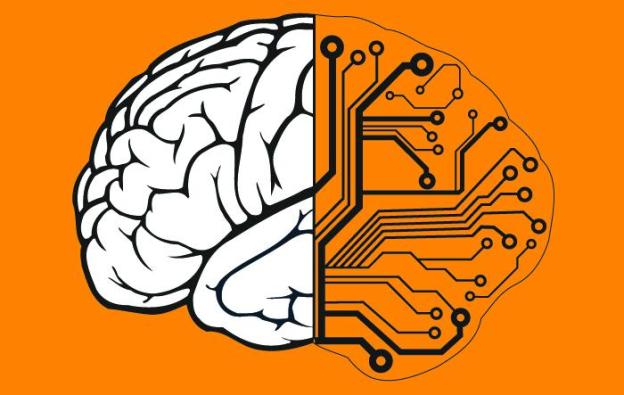
You’ve heard it before: In the future, machines will rule us all. To some extent, they already do. We are increasingly tied to our gadgets and gizmos. They answer our questions, provide entertainment, and connect us with one another. But as technology advances, these machines will become staggeringly intelligent. Not long from now, teaching machines artificial intelligence, or how to learn on their own, will become as important as learning how to program is today.
For some, a future run by artificial intelligence is a terrifying one — we’ve all seen Terminator, after all. But according to at least one A.I. expert, it’s not the machines we have to worry about. It’s the people who build them.
The gatekeepers
Meet Lars Hård, a serial entrepreneur from Lund, Sweden, and founder of A.I. software company ExpertMaker. Hård and the ExpertMaker team create tools that allow app developers, or anyone who’s interested, to build A.I. into their apps or other digital products. ExpertMaker’s product can be used by almost anyone, and works with most of the major platforms, including iOS, Windows Phone, Android, and BlackBerry, among others. According to Hård, ExpertMaker’s goal isn’t simply to make money — it’s to empower as many people as possible with the technology that will rule the coming century.
“Our approach is to distribute data to people more broadly,” Hård tells Digital Trends. “You need to democratize A.I.”
The reason for this, says Hård, is that A.I. technology can give those who have it absurd amounts of power over the information we can access, and the ways we access that information. And unless we start to spread the good word of A.I. to a greater portion of the public, the only ones who will gain the power inherent in this technology are large, profit-hungry corporations.
“If [A.I technology] is just in the hands of very large corporations, they could suddenly gain huge power from that,” says Hård. “So you need to distribute it more evenly, so that it’s a more-fair competitive landscape.
“A well-realized A.I. could give someone extreme powers,” he adds.
Of course, we are already seeing the early stages of this condensation of power. Google has become the gatekeeper of the world’s information thanks to its highly useful search algorithm — a form of artificial intelligence that turns your queries into relevant search results. Google claims its results are the “best,” and often times they are. (That’s what made Google Google, after all.) But the fact remains: Google’s engineers are the ones deciding what the most valuable information available is — what information you should see. Facebook, with the trove of data it has on its 901 million users, is quickly becoming just as powerful. As is IBM, with its “Jeopardy”-playing super-computer Watson.
Power to the people
To further its mission of democratizing A.I. technology, ExpertMaker is sponsoring a “hackathon” with (somewhat ironically) telecommunication giant Vodafone, which runs a technology incubator in Silicon Valley called Vodafone xone. The hackathon is set to take place June 8-11 in Redwood City, California. Those who take part in the event will be able to build A.I. technology into their apps, and learn how to use ExpertMaker’s A.I. tools in the process. “No A.I. pre-knowledge required,” the event’s website advertises.
“We see these large companies, for example in search and social networks, and so on, and they become so powerful because they have some kind of advantage,” says Hård. “And that advantage today is that they connect a lot of people, or that they have been processing more searches for longer than anyone else, so they know more. They have some kind of advantage that creates these super-large companies that control a lot [of data].
“So our take is that we’d like to distribute A.I. to more people because it’s a question about democratizing a kind-of-new technology so it’s more evenly distributed, giving more people and more companies these kind of advantages before somebody just takes it all.”
Conclusion
While the goal of democratizing A.I. technology appears to us an admirable goal, we are extremely skeptical of how widespread the mastery of such technology can really become. After all, a large number of people who use Twitter never actually send out a single tweet. If people aren’t even willing to type a sentence or two and press “enter,” can we really expect a significant portion of the population to become proficient in artificial intelligence development? Hård, for one, seems optimistic. But if you ask us, now might be a good time to prepare a nice gift basket for your robot overlords (and their parents).
Image via takito/Shutterstock

